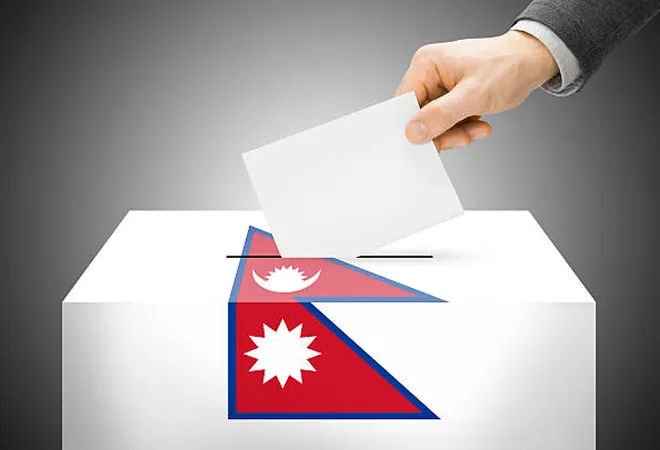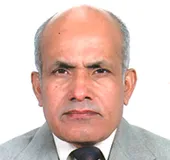-
CENTRES
Progammes & Centres
Location
As Nepal is on the cusp of elections, would the new local government be able to meet the people’s aspirations for development?

The year 2022 is crucial for the future of Nepal as elections for all the three levels of the government—the local, provincial, and national level—are being held this year. On 13 May, Nepal is holding elections in a single phase in all the 753 local bodies, including the rural municipalities, urban municipalities, sub-metropolitan cities, and metropolitan cities. Nearly 18 million voters are all set to cast their votes in the upcoming elections.
Of the three levels of government, 753 governments have been working at the local level, seven governments at the provincial level, and the remaining one government at the federal level. Each of these governments has independent authority. So, neither the local governments are working under the provincial or the federal government nor are the provincial governments working under the federal government.
Both the local and provincial governments heavily depend on the federal government for the financial resources and human resources to run the administration. Of the total revenue of the federal government, nearly 7 percent is allocated to the provincial governments and the remaining 7 percent to the local governments.
Both the local and provincial governments heavily depend on the federal government for the financial resources and human resources to run the administration.
It is for the second time after the promulgation of the Nepalese Constitution in 2015 that the elections for the local bodies are being held. Previously, the elections of the local bodies were conducted for the first time in 2017 in the three phases on 14 May, 28 June, and 18 September in the country.
In the forthcoming elections of the local bodies, the fate of 35,221 positions, including that of the 753 chiefs and their deputies, apart from the 6,743 ward chairs are to be decided. Considering the economic resources and autonomous character of these units, their role in raising the standard of living of the people through the community development programmes is important.
Altogether 79 political parties are contesting the elections at the local level. In this election, the ruling five political parties, including the Nepali Congress, the CPN-Maoist Centre, the CPN (Unified Socialist), the Janata Samajbadi Party, and Rashtriya Janamorcha have allied; while the main opposition party, the CPN-UML, has allied with fringe parties with Kamal Thapa-led Rashtriya Prajatantra Party, Ek Nath Dhakal-led Nepal Pariwar Dal and Mahanth Thakur-led Loktantrik Samajbadi Party.
Though the ruling partners planned to forge an electoral alliance in all the local units, they succeeded in doing so in not more than 60 percent of local bodies. Because of the electoral alliance, many active members of the ruling parties failed to contest the elections. As such, the number of the rebel candidates mainly in the Nepali Congress shot up unprecedentedly. The Nepali Congress expelled all those rebel candidates from the party who refused to withdraw and are fighting the elections as independent candidates.
All the necessary arrangements have already been made both by the Election Commission as well as the government to conduct the elections. Towards this end, the government has mobilised 100,000 temporary police for the polls, apart from over 70,000 personnel from the Nepal Army, 60,000 personnel from the Armed Police Force, and 30,000 personnel from the Nepal Police.
The Nepali Congress expelled all those rebel candidates from the party who refused to withdraw and are fighting the elections as independent candidates.
The Election Commission of Nepal has asked the Government of Nepal to shut the international border with India and China 72 hours prior to the elections to avoid any external attempt to disrupt the elections. People are enthusiastic about participating in the elections despite the call given by certain elements to boycott the elections.
Though 79 political parties are contesting elections of the local bodies, the main competition is between the two alliances: The ruling five-party alliance and the Opposition four-party alliance. Of these two alliances, the five-party alliance will likely dominate because of the split in the Nepal Communist Party. Similarly, the Madhesh-based political parties are also going to lose as they stand divided.
Over the years, the local governments could not perform well because they had no previous experience in planning, policy formulation, and execution of the development projects. On account of the lack of monitoring, the projects related to road construction, drinking water, sanitation, education, and health were executed haphazardly. To support the workers of the political parties and their cadets, larger funds were spent on such unproductive activities as the construction of temples, mosques, view towers, etc. People’s representatives at the local level exhibited their loyalty more to the political parties that they represented rather than their constituents.
The corruption brewed as the people’s representatives cared most about increasing their salary, perks, logistics, etc., and were not much serious about their constituents. To some extent, the local people could have controlled the corruption, but they remained passive. Transparency International found that the local bodies were highly corrupt, apart from the provincial and federal governments.
The local governments could not perform well because they had no previous experience in planning, policy formulation, and execution of the development projects. On account of the lack of monitoring, the projects related to road construction, drinking water, sanitation, education, and health were executed haphazardly.
One of the fundamental factors that compelled the local representatives to get involved in corruption was the costly election system. Reports state that the political parties, in general, extorted money from the candidates while distributing tickets. Together with campaigning during the time of elections and bribing the voters directly or indirectly proved too costly. The weakness of the Election Commission stops it from taking any action against those candidates in the elections who breach the code of conduct.
Therefore, what is needed most for the people at this critical moment is to vote for people who are honest, experienced, and transparent in financial deals. Those who are corrupt must be held accountable. Besides, the time has come to strengthen the Election Commission so that it could take direct action against the candidates if they flout the code of conduct. Moreover, party-less elections at the local level should be considered, for which the Constitution would have to be amended. If done so, the local bodies could be more effective in meeting people’s aspirations for development and change.
The views expressed above belong to the author(s). ORF research and analyses now available on Telegram! Click here to access our curated content — blogs, longforms and interviews.

Hari Bansh Jha was a Visiting Fellow at ORF. Formerly a professor of economics at Nepal's Tribhuvan University, Hari Bansh’s areas of interest include, Nepal-China-India strategic ...
Read More +